Two months have passed since Heidy Sánchez attended an immigration appointment that would turn her life and that of her family into a nightmare that continues to this day and still shows no clear sign of being over.
For the second time, Heidy welcomes the OnCuba team and describes the progress being made to reunite this family, scarred by the Trump administration’s harsh anti-immigrant policies.
More than sixty long days have passed since her one-and-a-half-year-old daughter was literally snatched from her arms. Heidy was subjected to expedited deportation proceedings that brought her back to her home country in 48 hours, after six years of living in the United States.
Deported and without her baby daughter: Heidy Sánchez’s desperation
“A lot has happened during this time, but in this case, nothing concrete,” Heidy tells us.
The young woman appears thinner, seemingly calmer, but tears appear as soon as she begins to talk about her little girl, and her answers are more concise. The emotional exhaustion takes its toll, and it’s evident.
“The only thing that keeps me alive, breathing, is the hope of being with my little girl. I have to hold on to that faith,” she tells us, while repeatedly, again and again, the phrase “we are waiting”, accompanying her words with sighs.
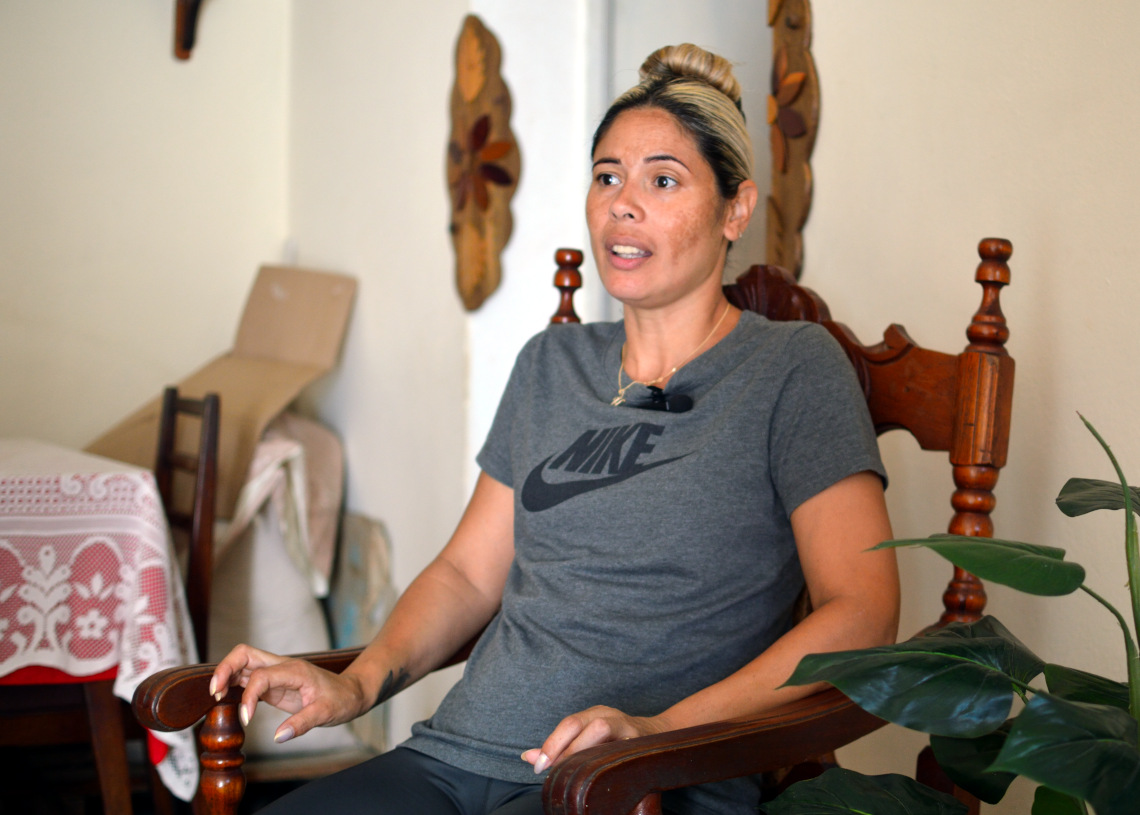
Currently, her lawyer and her husband are pursuing two processes in the United States that are, for now, their only hope of being together again; one of them made progress earlier this month.
“On June 6, my husband finally had an appointment with immigration, where they approved his family petition. We’re waiting for the date for my interview here at the embassy in Cuba, which involves requesting two pardons. It’s up to me to convince the consul to pardon me for entering the United States illegally and see if they accept me,” she explains.
“The other thing is a humanitarian visa. My lawyer wanted to handle both processes together, to see which of the two could be faster. Right now, they’re both there, but they’re also far away. I think the family petition would be the safest, but the longest. The humanitarian visa could be a little faster for the girl, due to her condition, but it depends on them,” Heidy summarizes.
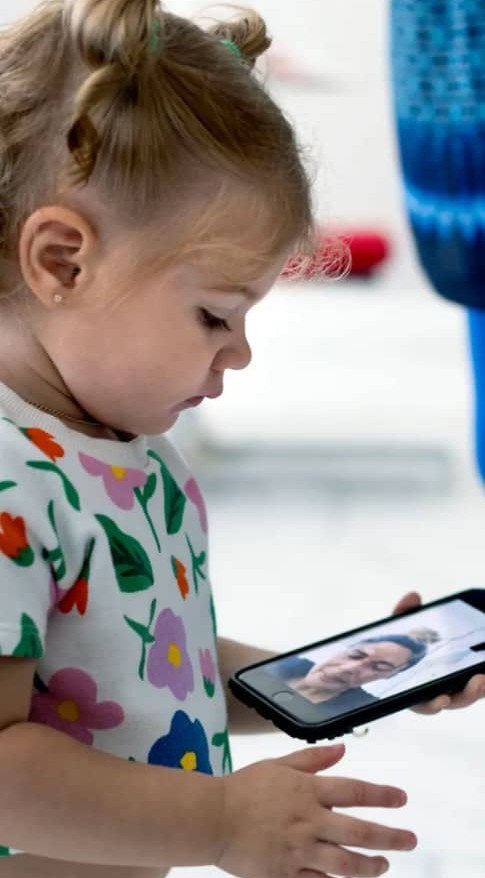
The tireless efforts they’re making amid an unfavorable context in which, as they anticipated from the beginning, they are focused on trying to alleviate the situation of the most affected: their little girl.
“The little girl is very upset right now. My husband and the grandmother don’t know how to calm her down anymore. She doesn’t want to eat, she doesn’t want to sleep anymore, not at midday or at night. I used to sing to her and managed to put her to sleep, but it’s now two and three in the morning, and the little girl is still awake. She screams all the time, cries all the time. She doesn’t want to drink bottled milk anymore. They are going through some difficult days right now and are afraid that she will become upset and have a repeat seizure,” says Heidy.
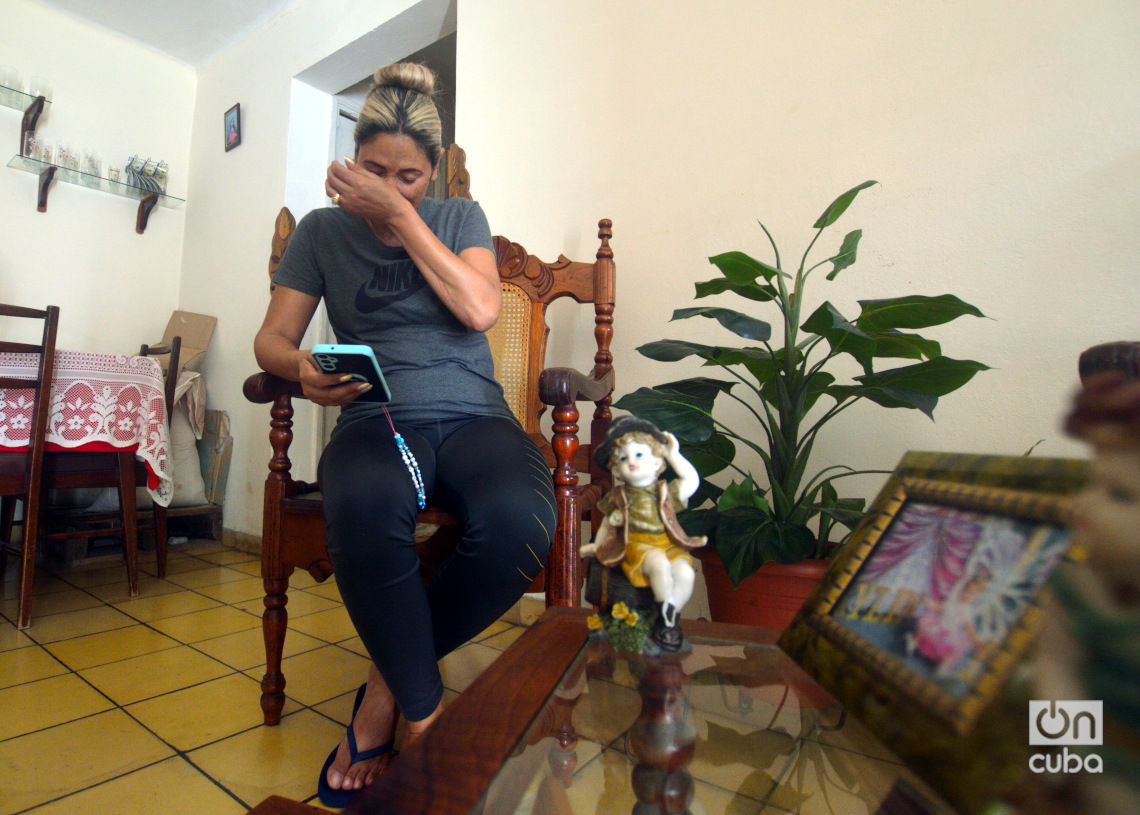
“She doesn’t want her hair done, because her mom was the one who did her hair, her mom was the one who chose the things for her hair. Right now, she’s completely rejecting everything. She doesn’t know, she doesn’t understand why her mom isn’t there. She just calls me ‘Mom,’ and she answers herself: working”, alluding to the excuse they’ve used to try to keep the girl calm, who is already receiving psychological care for the effects of her mother’s absence on her health.
In Cuba, Heidy has also decided to remain in psychological treatment because, “Now that I see the girl’s situation, I’m even more upset,” she tells us.
“Everything has gone through my mind. Just yesterday, I was telling my husband’s family that if I could run, if I could run across that sea right now, I would do it. I wouldn’t care at all, because the girl was crying, she wouldn’t stop, she wouldn’t eat, she couldn’t be comforted. And here I am with my hands tied, unable to do anything. The shock is severe for me, but it’s even more severe for her. She can’t adapt, she misses me, and she doesn’t know how to express it,” she says, and it’s clear that desperation is speaking.

“Time doesn’t go by; time is eternal. It’s counting the minutes to talk, to see if she’s had lunch, if she’s had her milk, if her hair has been combed, if she’s been bathed, all the time keeping an eye on the little girl’s things. In the afternoons, I do a bit of exercise at home, to tire myself out, to try to de-stress, which is impossible, but oh well…,” is how she sums up her days, which now pass on the outskirts of Havana.
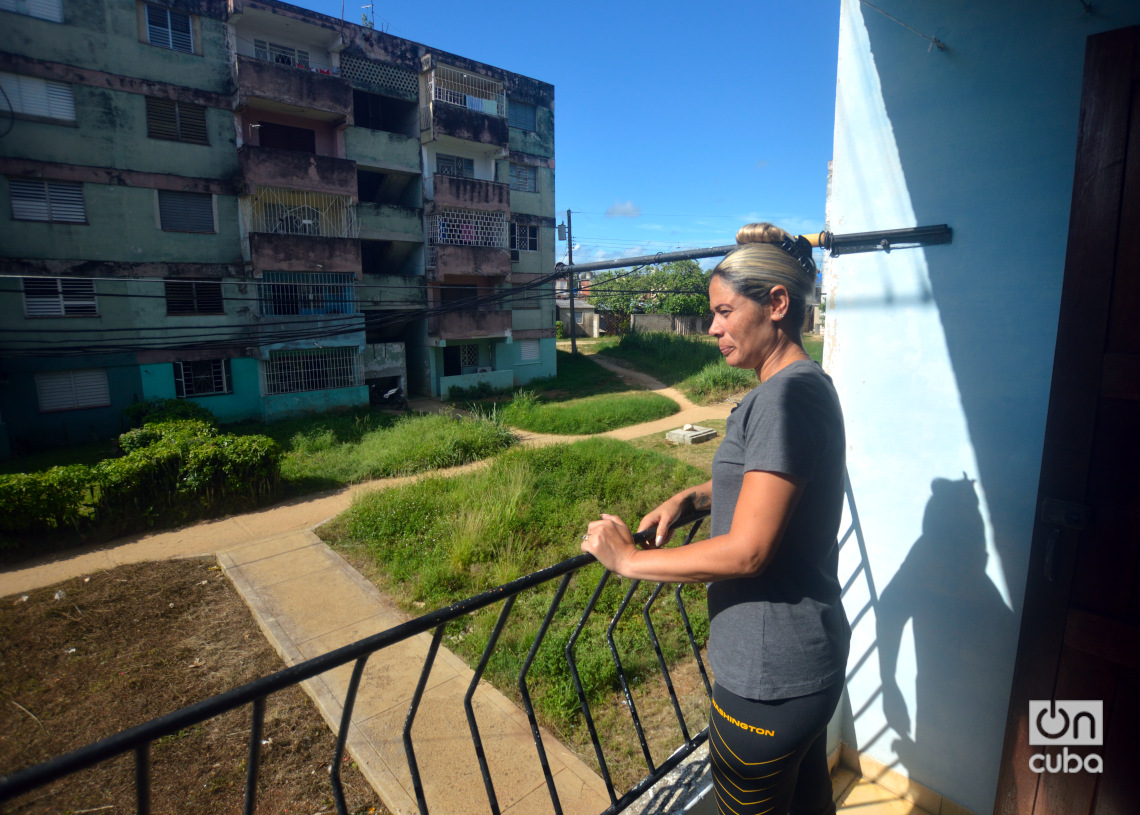
“Now I’m in San José. I left Havana, and I’m going to be here for a while. In Havana, everyone was there, and I didn’t have much space. And the house wasn’t ours either,” she explains her decision, which in turn has allowed her access to a better internet connection and made it easier to communicate with her husband and daughter.
Her story, unfortunately, is not unique. Several Latin American parents have been separated from their children through the relentless deportation policy implemented by the Donald Trump administration, which is causing real terror in the Latino community in the United States.
News of other Cubans, men and women who have suffered or fear the same fate as Heidy, has also been making headlines in recent weeks.
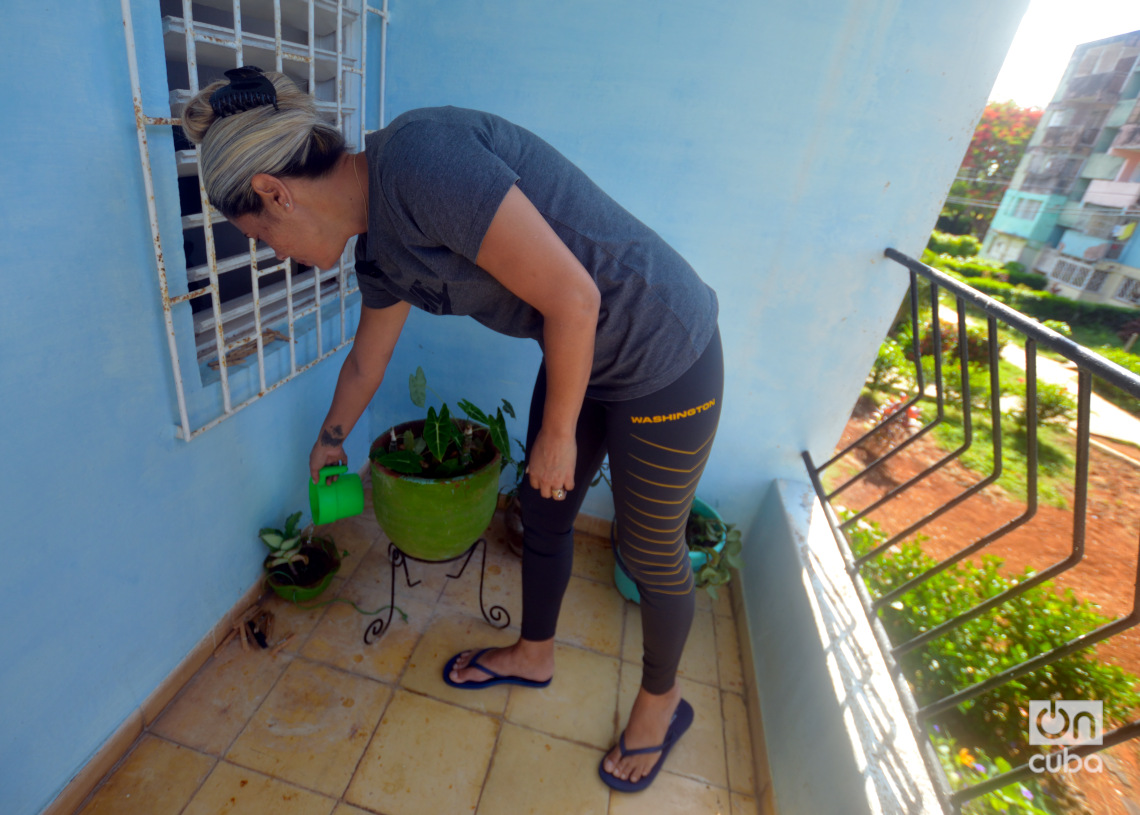
“I’ve seen that they continue to arrest, that the raids continue, and that they continue to separate families. Coincidentally, a young woman wrote to my husband. She has a two-month-old daughter, and something similar happened to her. Her appointment was rescheduled, and she’s very nervous about what might happen,” she says when we ask her how up-to-date she is with everything that’s happening in this regard.
“That breaks my heart. I experienced it firsthand, and it’s very difficult. It’s very difficult to be separated from what you love most in life. It shouldn’t be like this. I happened to see the interview, and she said that they were even taking away her right to be a mother. I spent so many years trying to get pregnant, and they separated me from my daughter. I put myself in the shoes of all those mothers, and I’m living it here and know it’s very hard. It shouldn’t be like this.”
In addition to everything Heidy and her family have experienced, they have had to deal with the media coverage of her case, which has sparked a series of reactions, opinions and stances of all kinds.
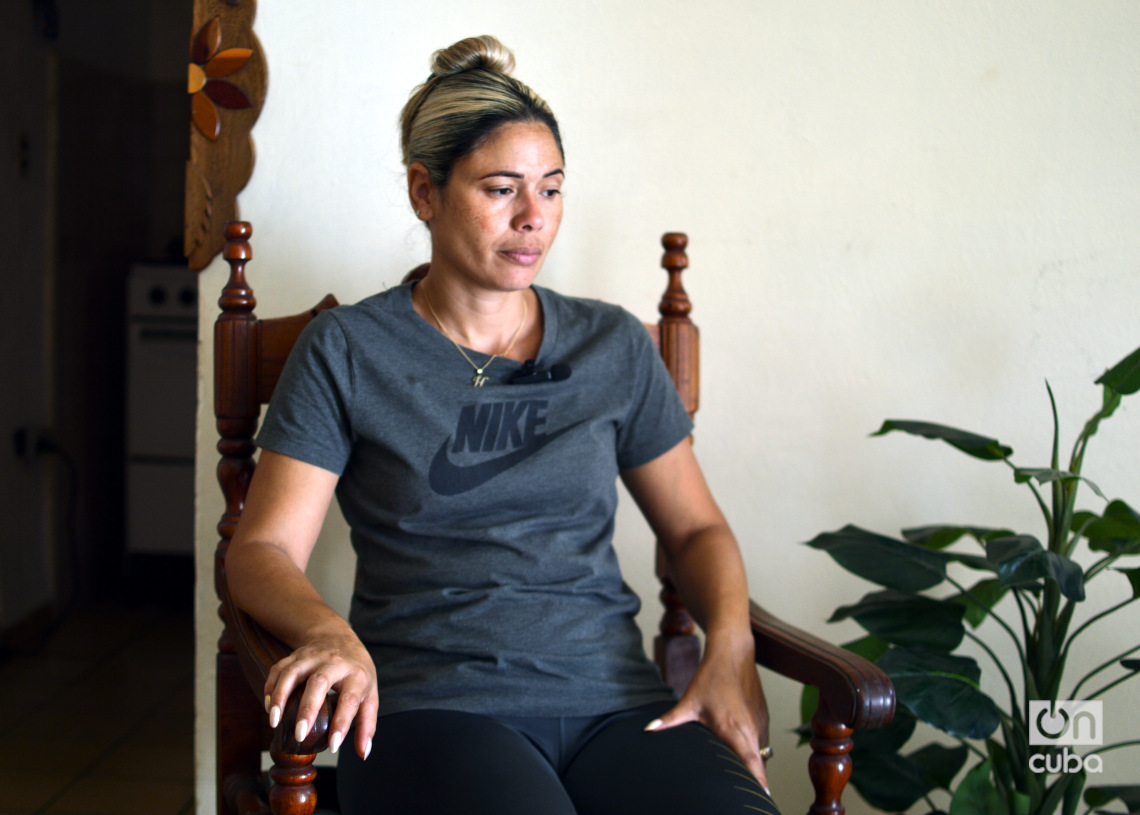
What do you say to the people who have had a word of encouragement for you?
“Thank you to all those people, thank you for the encouragement, for the strength you give us, both my husband and I. We read everything, and all we can say is thank you for the support, because it’s truly been a lot, and we’ve felt it.”
To those who don’t?
“To those who don’t, we still thank you. I don’t know why they’re like this, why they prefer to criticize, why they prefer to offend, but that’s their thinking, and who am I to judge them or tell them anything. It’s their opinion, period. It doesn’t matter.
“As a community, we should have a little more empathy. I’ll leave that as homework for them. It’s not my place to deal with them.”









